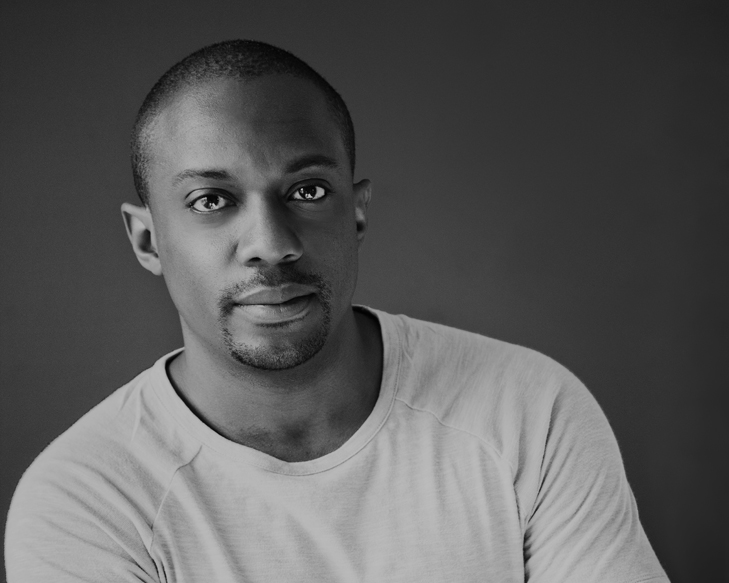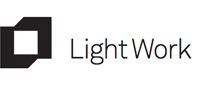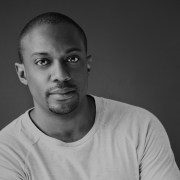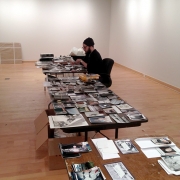Jason Lazarus: Too Hard to Keep (Syracuse)
April 4 – May 31, 2013
Kathleen O. Ellis Gallery
Gallery Talk: Thursday, April 4, 5pm
Reception: Thursday, April 4, 5-7pm
In 2010 Chicago-based artist Jason Lazarus initiated a living archive of photos deemed “too hard to keep.”
Too Hard to Keep is a place for photographs, photo albums, photo-objects, and even digital files to exist when they are too difficult to hold on to, yet too meaningful to destroy. Participants have dictated whether the photographs submitted to the archive may be shown freely with other pieces of the archive, or if they are only to be displayed face down, adding to the charged significance of individual objects.
With the exhibition Too Hard to Keep (Syracuse) Lazarus shares a slice of the larger archive and invites anonymous local submissions in a carefully considered installation at Light Work.
—
Shane Lavalette: The idea of being the one responsible for all things “too hard to keep” seems daunting! What compelled you to start this archive?
Jason Lazarus: First, it needed to happen; I am the type of person who would participate in this project! Second, over the past few years I have been increasingly been interested in the vernacular—collecting, editing, curating images for additional meaning as I encounter them. For me it’s as urgent and compelling as making my own original image with a camera, and my photographic practice simultaneously embraces both these days.
This project, once conceived, grew organically as I reached out to my immediate network, and the earnestness of the submissions invigorates the labor and care needed to administer them.
SL: This ‘earnestness’ is palpable in viewing the archive. One can feel it. I’m always amazed at how over the course of an image’s life, our feelings toward it can shift from joy, to anger, indifference, or deep sadness. Of course it’s different for every circumstance, but how would you characterize this overwhelming need to part with an object, and more specifically, a photograph?
JL: One note about the presentation strategy: I want the viewer to feel my relationship to the images as well—that this is not a distanced, museumological, and sterile archive but an artist-run project that has a feeling and imperfect hand guiding the materials. Regarding parting with things, we’re always an amalgam of our past, the present, and our idea of our future—objects come and go as we need them. Letting go of photographs is more about the future than the past…
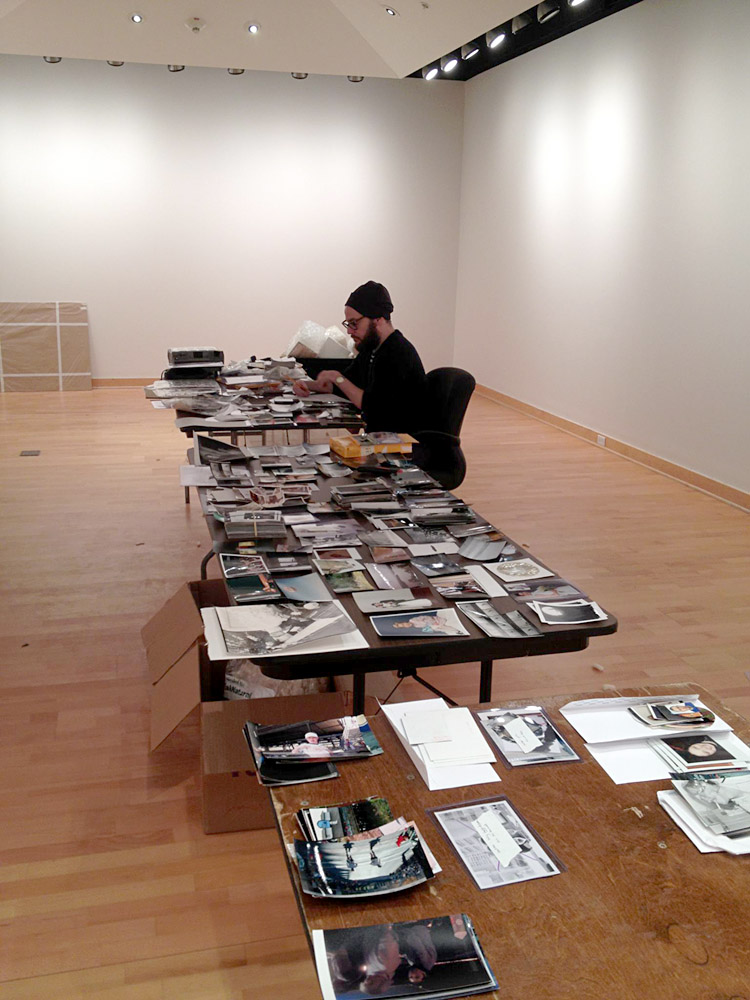
Jason Lazarus: Too Hard to Keep (Syracuse) at Light Work
SL: Do you find yourself conflicted when installing such personal items in the context of an art exhibition?
JL: No, I’m more conflicted with how to create strategies to relay the tension of each entry. Sometimes installation strategies can undermine the whole project, and other times they underscore the epic qualities innate to the archive
SL: I love the fact that you’ve allowed certain images or objects to be exhibited but concealed at the request of the former owner—in the case of photographic prints, by just showing the backs of them. How do you see these in conversation with the other images?
JL: The images submitted as private and therefore exhibited face down are vital—they say as much about the owners (and the rest of us) as the most potent images we get to see. Quietly, and still visually, they have much to say. They are activated by the public images, and vice versa. The audience is asked to consider them as placeholders, as open narrative, as truly charged and thus, in a way, dangerous.
SL: Charged? Dangerous? Interesting use of words… Can you elaborate?
JL: They are symbolic of our own worst fears… they can be projected upon without limit.
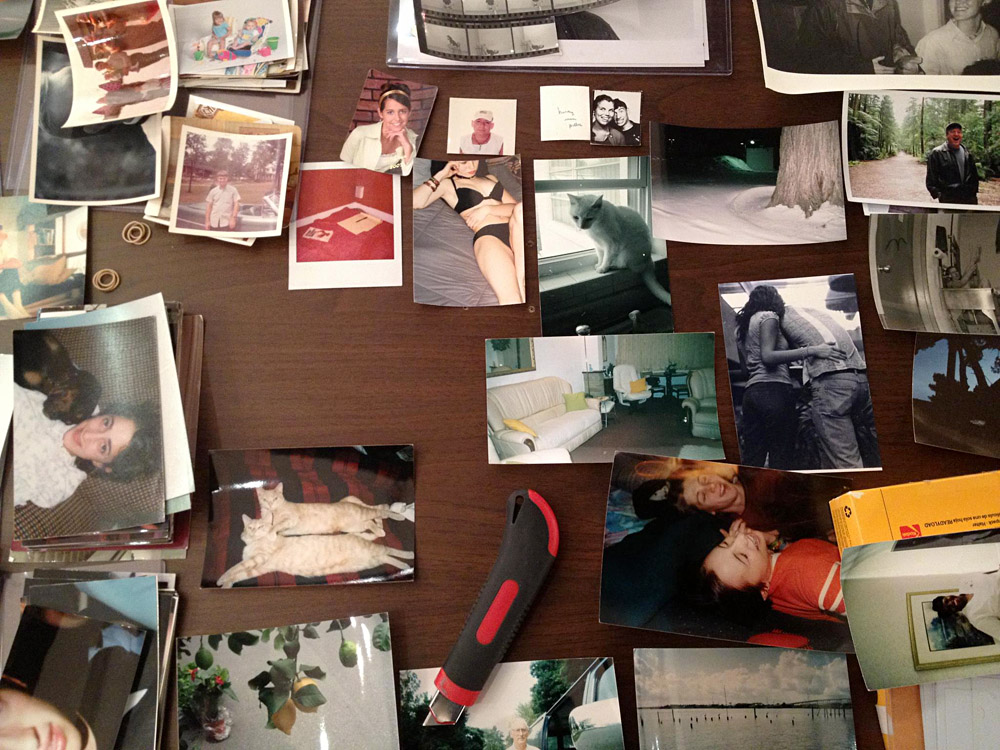
Jason Lazarus: Too Hard to Keep (Syracuse) at Light Work
SL: How would you describe the themes that arise in the archive? Do you find patterns, oddities, clichés?
JL: Yes, they couch everything from singularity to cliché as any large group of vernacular images might. Their unifying thread in this archive, the fact that they are “too hard to keep,” folds the familiar patterns and tropes of the private vernacular into a refreshed tension—they are taut…
SL: What have you found to be the most moving submissions? Is there one in particular that continues to strike you?
JL: My relationship with the archive and all of its contents is always in flux. Landscapes in the archive can be phenomenally powerful. To have an outdoor expanse implicated is for me fascinating and I can relate to this sometimes more easily than an image of a person who I don’t know. The private images are always moving to me when installed. They are obstinate, they refuse to bore the viewer with content, they are completely elemental in this project—all charge, no window.
SL: I’m glad you touched on this. There are certain images which may be hard for some viewers to imagine why they are “too hard to keep”—a landscape, a building, an abstraction. I find these to be the most powerful…
JL: Yes, there is a sort of slow violence about the most static images.
SL: You recently opened the archive up to digital submissions, and even offered your personal cell phone number for anyone to anonymously text images to you. In what way are these submissions different than the physical ones?
JL: I’m not sure yet, as I’ve only been receiving digital submissions for a relatively short period of time. Certainly I miss the objecthood of these entries, and the stories the photos-as-objects may have can’t be immediately seen (yellowing, wear and tear, handwriting, etc). On the other hand, receiving them unexpectedly on my phone, in the middle of a normal day, out of thin air, is poetically very rewarding. Someone’s personal narrative literally interrupts mine. It’s an unexpected shock, a signal, a moment of camaraderie…
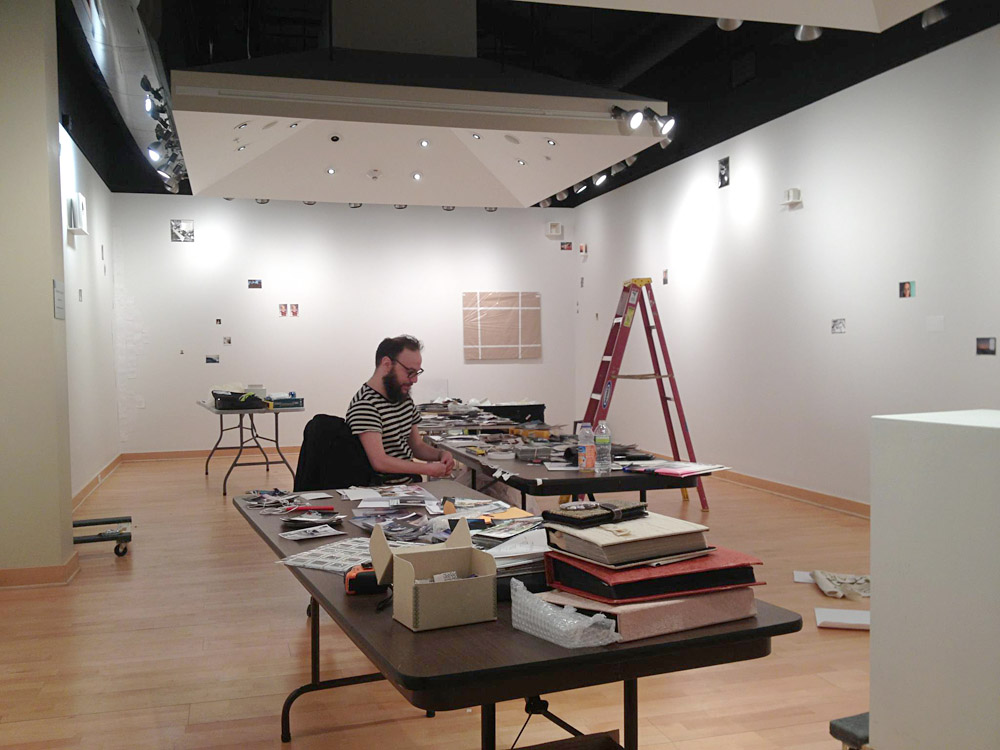
Jason Lazarus: Too Hard to Keep (Syracuse) at Light Work
SL: This makes me wonder… How do you view our relationship to, say, ‘photo albums’ on Facebook to the dusty ones in the closet? Can we have the same sentimentality or pain result from a digital file as a photographic print?
JL: It’s not for me to say. I feel lucky to be living at a time when one image paradigm is leading to another, and I can actively question both from a sense of heightened awareness and perspective.
Now that personal photos are digitized, it’s interesting to watch them, like water, effortlessly find their way quickly into new crevices and reservoirs far from their original source.
SL: What is your process of engaging with a local community, for example Syracuse?
JL: When possible, I will make myself available to a community for one day of personal pickups. I’ll dedicate 8-10 hours of being on call so community members can submit to the project in person without much effort on their part. Going to where the photos live is, for me, a unique and rare opportunity to understand their history and context better, even if the eventual audience is not privy to this information. It helps me become a better curator and artist within the archive’s parameters.
SL: Do you see an end in sight, or is the Too Hard to Keep archive a life-long commitment?
JL: T.H.T.K. is a life-long project, and I have found a colleague, Aron Gent of Chicago, to take it over in case something unexpected should happen to me. This way I can ensure some continuity to the archive and its format, as well as reciprocate the faith that the public has put into the project.
SL: With Too Hard to Keep (Syracuse) the site-specific installation of selected images and objects from the archive will also live on in publication form, as an issue of Contact Sheet. How will these images change when reproduced in the pages of the book? Who do you hope discovers this catalogue?
JL: I’m not sure actually, as the project hasn’t been published yet. I have instincts about what may happen, but it’s a puzzle—I’m interested in finding ways to keep the tension alive and complex when the actual object is no longer at arms reach.
Unlike a lot of other contemporary image based work where you significantly benefit from having studied photographic history and theory, the audience for this project starts with everyone…
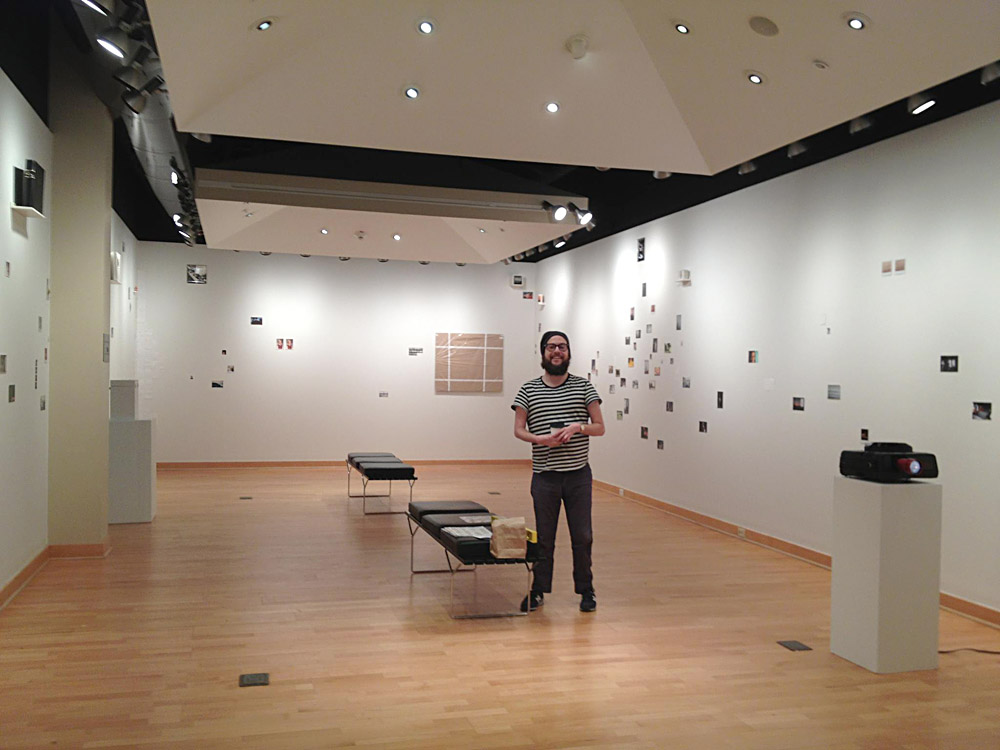
Jason Lazarus: Too Hard to Keep (Syracuse) at Light Work
—
Jason Lazarus is a Chicago-based artist, curator, writer, and educator who received his MFA in Photography from Columbia College Chicago in 2003. Lazarus has actively exhibited around the country and abroad while teaching photography at Columbia College and the School of the Art Institute of Chicago. Selected exhibition highlights include Black Is, Black Aint at the Renaissance Society, Chicago, IL; Image Search at PPOW Gallery, New York, NY; On the Scene at the Art Institute of Chicago, Chicago, IL; and solo exhibitions at Andrew Rafacz Gallery, Chicago, IL; the Museum of Contemporary Art, Chicago, IL; Kaune, Sudendorf, Cologne, Germany; and D3 Projects, Los Angeles, CA. Notable honors include the John Gutmann Photography Fellowship, 2010; an Illinois Arts Council Fellowship award, 2009; the Richard H. Driehaus Foundation Award, Emerging Artist, 2008; and the Emerging Artist Artadia Grant, 2006. His work can be found in the collections of the Art Institute of Chicago, the Museum of Contemporary Art Chicago, the Milwaukee Museum of Art, and the Bank of America LaSalle Photography collection, among many others. Lazarus is represented by Andrew Rafacz Gallery, Chicago, IL.
www.jasonlazarus.com
—
Interested in submitting to the T.H.T.K. archive?
Drop off your print anonymously in the drop box located at Light Work during the length of the exhibition. If you are not local, you can submit to the artist directly by following the instructions at toohardtokeep.blogspot.com
